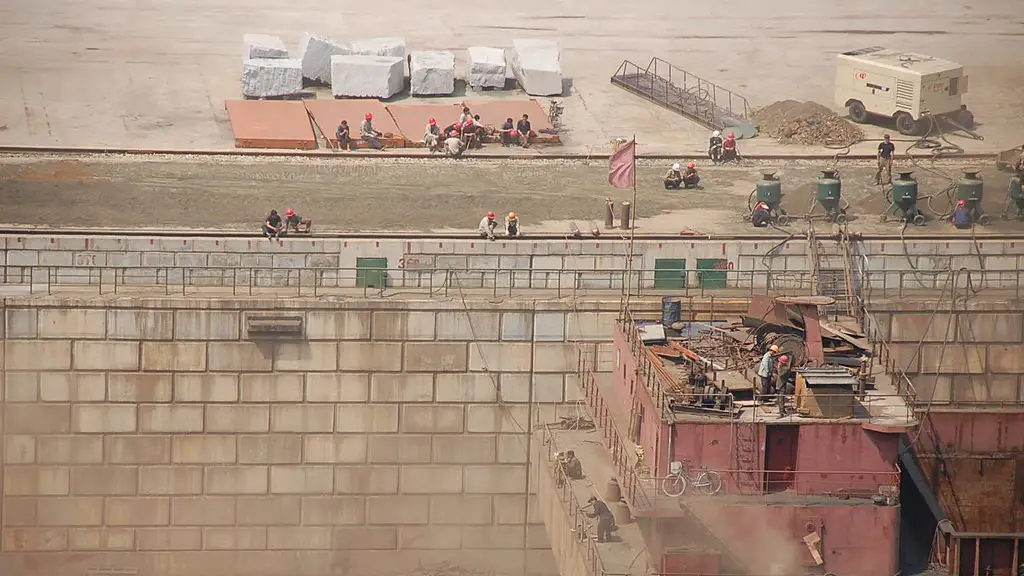Conflicting Interests
The American people have long debated the question of whether the United States should intervene in North Korea. On the one hand, North Korea is a nation that has suffered great hardship under its leader, Kim Jong Un, and his forebears. The nation is currently in need of humanitarian aid and basic necessities, while its citizens are denied access to the world’s most basic freedoms. On the other hand, North Korean actions such as the test launch of missiles and the threats of nuclear weapons lead many to argue that intervening could destabilize an already volatile situation.
North Korea’s Military Ambitions
In recent years, North Korea has been increasingly testing its nuclear weapons capabilities. In 2017, they tested two intercontinental ballistic missiles within two months. It is believed that North Korea’s military ambitions could pose a serious threat to regional stability and even world security. This threat is further enhanced by the fact that North Korea’s nuclear capabilities are largely untested and it is unclear if they could be used against the United States.
The US Perspective
From a US perspective, the decision to intervene in North Korea is a difficult one. Many in the US see North Korea as a rogue nation and its leader, Kim Jong Un, as an unpredictable and dangerous dictator. As a result, the US has implemented a “maximum pressure” campaign to put economic pressure on North Korea through sanctions.
The US has also made it clear they are willing to use military force, if necessary, to protect its interests in the Korean peninsula. However, some experts worry that military intervention in North Korea could lead to a catastrophic conflict.
The UN Perspective
The United Nations has taken a more measured approach to dealing with North Korea. The UN Security Council passed a series of sanctions designed to put economic pressure on North Korea and prevent it from developing and deploying nuclear weapons.
At the same time, the UN has been urging both North Korea and the United States to return to the negotiating table in order to find a peaceful resolution to the current conflict. So far, though, both sides have been unwilling to enter into talks.
Human Rights Violations
Human rights organizations have long called for international intervention in North Korea, citing the nation’s record of human rights violations. Amnesty International, for instance, estimates that around 14 million North Koreans live without access to basic freedoms such as freedom of expression, speech, association and assembly.
Organizations such as the International Red Cross and Doctors Without Borders have also been outspoken about their opposition to North Korea’s human rights record and have called for international action.
The Regional Impacts
The decision to intervene in North Korea could have far-reaching ramifications for the region as a whole. If the US were to intervene militarily, there could be a dangerous escalation of tensions between the two nations, as well as with other regional powers such as China and South Korea.
Intervening could also lead to a destabilization of the entire region, which could have far-reaching economic, political and security implications for the entire Asian continent.
What Should be Done?
The question of whether or not to intervene in North Korea is complex and can not be answered with a simple yes or no. The US must weigh the risks and rewards of intervening, and consider the regional and global implications of any action it takes.
For now, the US should continue to pursue diplomatic options and international pressure to bring North Korea to the negotiating table and ensure it stands by international agreements and norms. This could be done through sanctions, targeted economic pressure and continued engagement with the North Korean people.
The Threat of War
Though some experts argue that a military intervention by the United States in North Korea could prove to be effective, it is also likely to lead to a costly and destructive war. The United States and North Korea have not engaged in direct military conflict since the 1950s, and any attempt to do so now would most likely lead to devastating consequences.
The massive destruction that a war between the US and North Korea would cause would likely have a catastrophic impact on the region and the world at large.
The Value of Aid
It is important to bear in mind that even without direct intervention, the United States can have a positive impact on North Korea. The US has provided much-needed humanitarian aid to the North Korean people in the form of food, medicine, and other necessities.
In addition, the US can continue to use targeted economic sanctions to put pressure on the North Korean government to change its policies. Finally, the US can continue to engage with the North Korean people and work to promote human rights, access to education and opportunities for economic growth.
Divided World Opinion
The debate over whether or not to intervene in North Korea has divided opinion around the world. On the one hand, some nations, such as the United States, argue that North Korea must be stopped from developing a nuclear weapon and its human rights abuses must be ended. On the other hand, some nations believe that the US should instead pursue a diplomatic solution and avoid military action.
Ultimately, the decision of whether or not to intervene in North Korea is a complex one that must be weighed carefully. The US must consider the potential ramifications of any intervention, both for the region and for the world as a whole.


